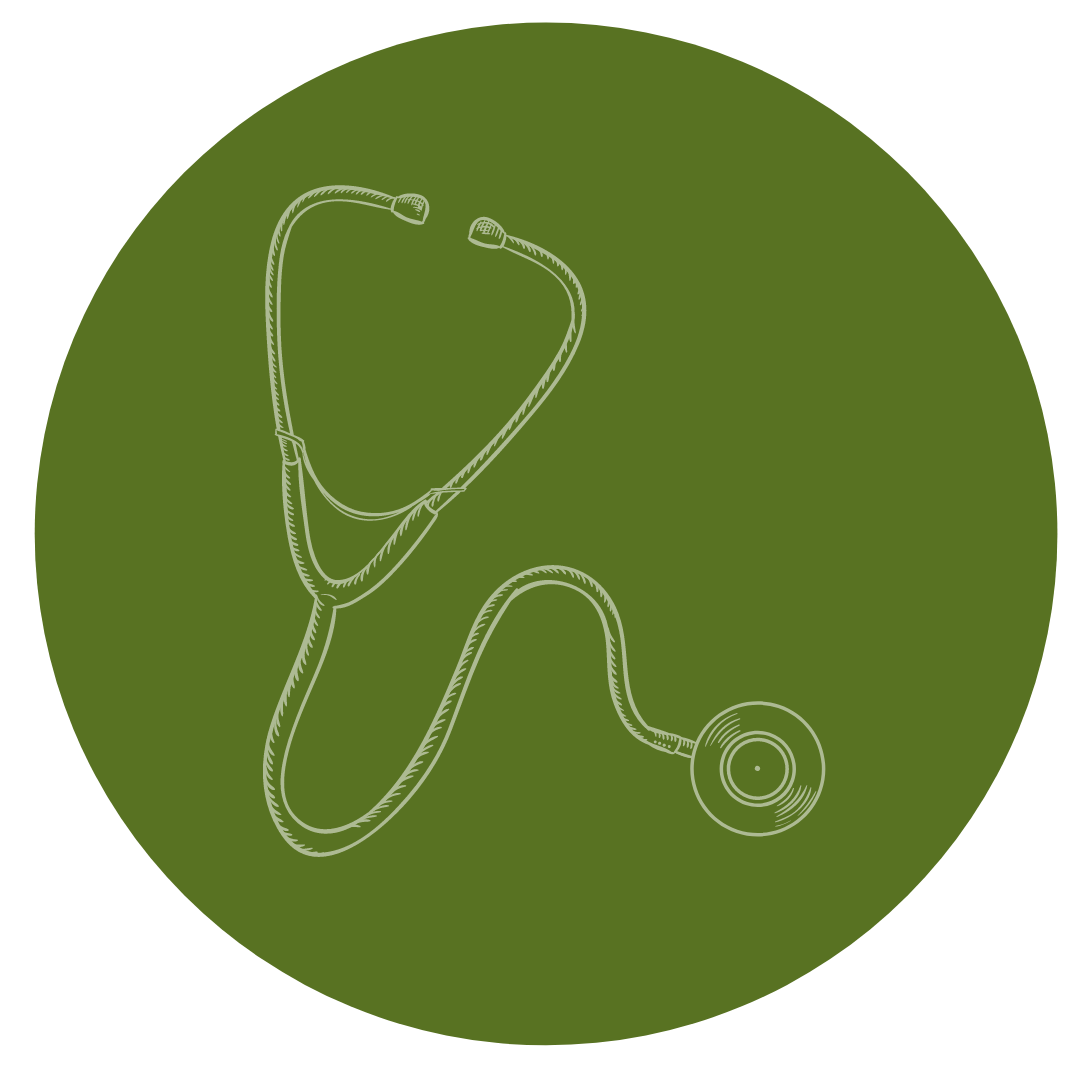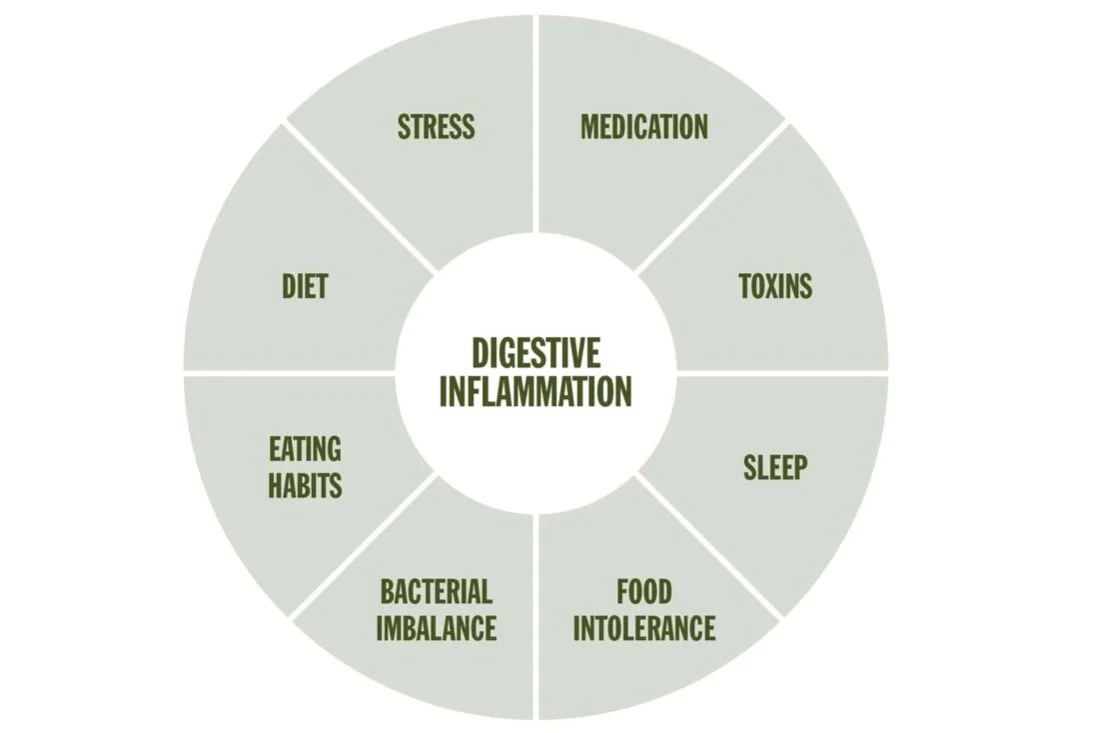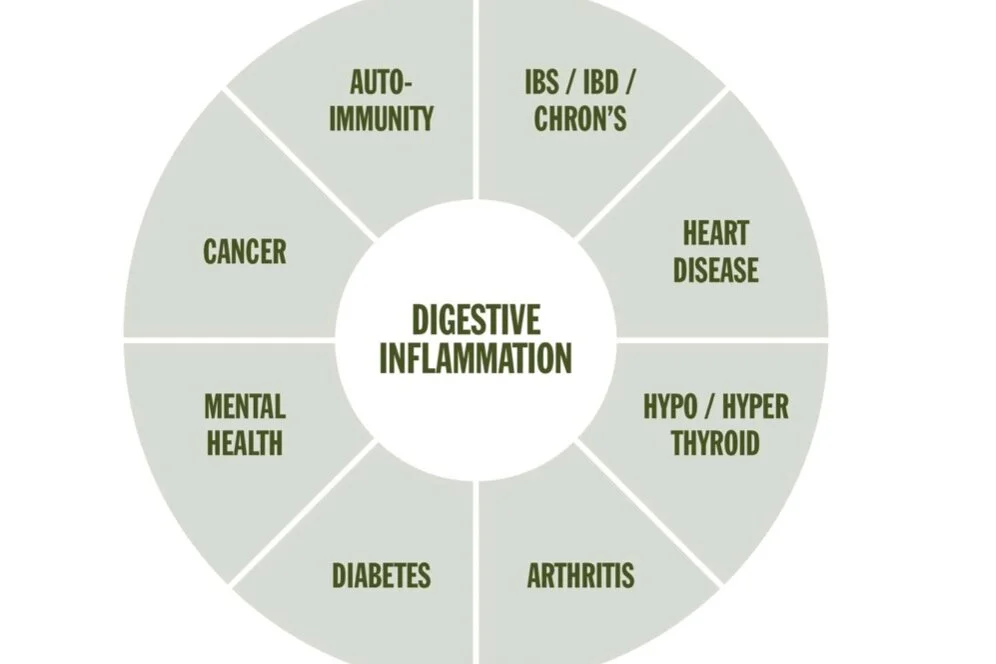
Functional Medicine
What is Functional Medicine?…
Functional Medicine focusses on the body as a whole rather than breaking it down into its individual parts. By doing this we look into your body at a deeper level to find the root cause of all of the symptoms or disease processes; rather than viewing them as separate problems, unconnected from each other. There is nowhere in biology (the human body or natural environments) that you can influence one system or species without influencing the entire body or ecosystem. By taking this approach we are able to return your body to a state of balance. This allows you to realise your true health rather than spending a lifetime merely trying to manage your symptoms.
Whats the Difference between Functional and Conventional Medicine?
What does this approach look like in practice?
-

Consultation & Planning
First of all we get to know you and your unique health and medical history. From here we will jointly plan any additional labs or investigations needed to get the root cause of your complaints.
-

Interpretation
We will undertake an in-depth interpretation of your results and unique circumstances. We will then feedback these results to you explaining how they fit with your symptoms and history.
-

Treatment
Here we work collaboratively with you to find the most personalised and comprehensive treatment that works your needs. Every person needs a unique approach, we need the one that will work best for you.
-

Implementation & support
Working together we help you implement and adapt the treatment plan to your ever changing needs, whilst providing the level of support that you personally require.
Conditions That Functional Medicine can Help…
-
High Cholesterol
High Blood Pressure
High Triglycerides
Chronic Heart Disease*
Postural Orthostatic Tachycardia Syndrome (POTS)
Arrhythmia’s*
Asthma
Sleep Apnoea
-
Headaches & Migraines
Stress
Burnout
Depression
Anxiety
Chronic Fatigue
Recovery from Traumatic Brain Injuries*
-
Hormonal Imbalance
Poly Cystic Ovary Syndrome (PCOS)
Altered Menstrual Cycles
Adrenal Dysfunction
Low Libido
Menopause / Perimenopause
Lowered Testosterone
-
Bloating
IBS / IBD
Crohn’s Disease
Ulcerative Colitis
Acid Reflux / GERD
Small Intestine Bacterial Overgrowth (SIBO)
Food Intolerance
Candida Overgrowth
Parasitic Infections
Diverticulitis
Dysbacteriosis
-
Metabolic Syndrome
Diabetes, Pre Natal Diabetes and Pre Diabetes
Cancer*
Weight Management
Osteoporosis / Osteopenia
-
Hypothyroidism
Hyperthyroidism
Hashimoto’s
Graves
-
Multiple Sclerosis
Lupus
Vitiligo
Hashimoto’s & Grave’s
Sjorgen’s
Psoriasis
Arthritis (Psoriatic and Rheumatoid)
Type I Diabetes*
Celiac Disease
-
Chronic Neck Pain
Chronic Back Pain
Frozen Shoulder
Arthritis (of all types)
Gout
Fibromyalgia
Chronic unresolving/recurring Tendon, Muscle, and Ligament Pain
-
Acne
Vitiligo
Rosacea
Psoriasis
Dermatitis
Perioral Dermatitis
The reason that functional medicine can help with such a varied array of conditions is due to the nature of the way we work. As we stated above we don’t treat disease, we find out what is causing the disease and we treat that. When a disease focussed approach to medicine is taken some people will get better, and others don’t. The considered normal treatment for that condition might be the right treatment for some. However; it might not be the right treatment for someone else. The cause of their disease or symptoms might be completely different and they might have a completely different set of individual circumstances. This is the reason we don’t chase the disease or the symptoms in Functional Medicine. Instead by focussing on the individual cause and unique circumstances for each person we deliver a completely bespoke treatment plan every time. .
Below we highlight how multiple different factors can cause digestive inflammation in a person. Then we look at how digestive inflammation can then contribute to a multitude of different diseases. By looking at this example you can see how there are so many different cause that can lead to the same disease in different people.
-
Causes of Digestive Inflammation
The diagram below demonstrates how something like digestive inflammation can be caused by many different contributing factors. There are many that we wouldn’t know we had exposure to. (just a few of the many included in the diagram).

-
Problems Digestive Inflammation Causes
We then go on to show how that digestive inflammation can then go on to be at heart of many different disease processes and/or manifest itself in many different symptoms (again just a few of the many mentioned in the diagram).


“The art of healing comes from nature, not from the physician. Therefore the physician must start from nature, with an open mind.”
— Paracelsus
